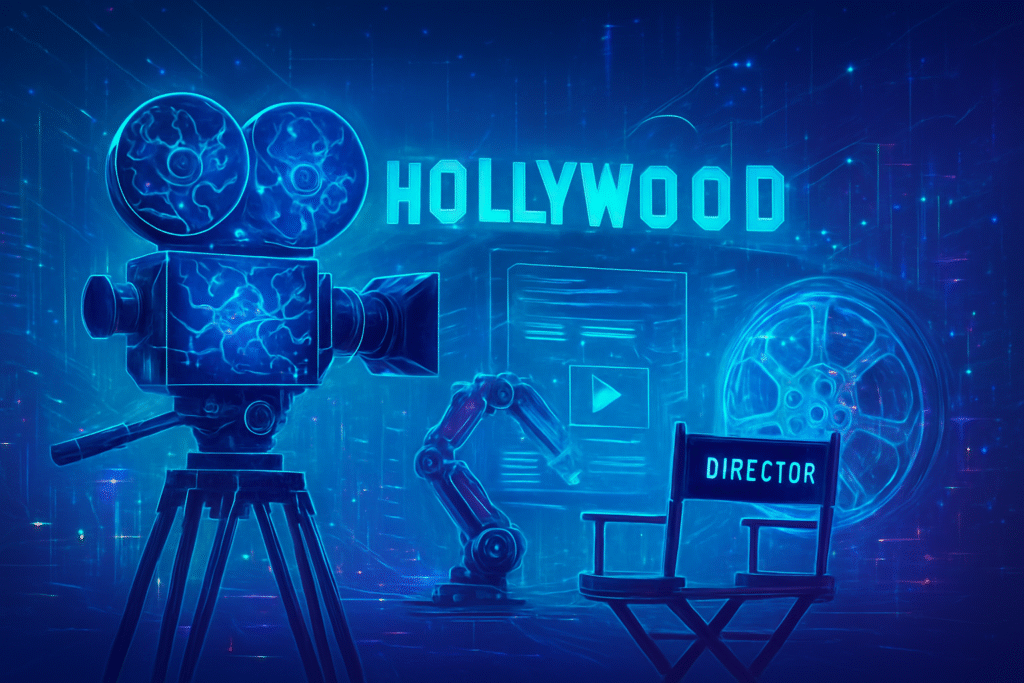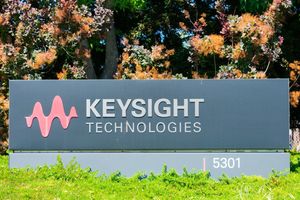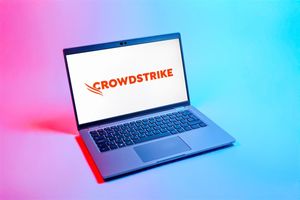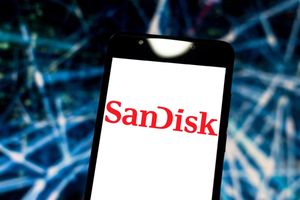
Hollywood, the global epicenter of entertainment, is undergoing a profound transformation as artificial intelligence rapidly integrates into its production processes. A recent 'rare look' reported by ABC News, among other outlets, reveals that AI is no longer a futuristic concept but a present-day reality, already streamlining workflows, cutting costs, and opening unprecedented creative avenues. This immediate significance signals a pivotal shift, promising to reshape how stories are conceived, created, and consumed, while simultaneously sparking intense debate over job security, creative control, and ethical boundaries. As of November 3, 2025, the industry stands at a critical juncture, balancing the allure of technological innovation with the imperative to preserve human artistry.
Technical Deep Dive: AI's Precision Tools Reshape Production
The technical advancements of AI in Hollywood are both sophisticated and diverse, extending across pre-production, visual effects (VFX), and content generation. These AI-powered tools fundamentally differ from previous approaches by automating labor-intensive tasks, accelerating workflows, and democratizing access to high-end filmmaking capabilities.
In Visual Effects (VFX), AI is a game-changer. Tools like those from Adobe (NASDAQ: ADBE) with Content-Aware Fill and Runway ML for AI-powered masking can instantly separate subjects from backgrounds, automate rotoscoping, tracking, and masking – processes that traditionally required meticulous, frame-by-frame manual effort. Intelligent rendering engines, such as those integrated into Epic Games' Unreal Engine 5, utilize AI-powered upscaling for real-time photorealistic rendering, drastically cutting down rendering times from days to minutes. AI also enables hyper-realistic character and facial animation, generating natural lip-syncing and micro-expressions from simple video inputs, thus reducing reliance on expensive motion capture suits. The "de-aging" of actors in films like "The Irishman" showcases AI's unprecedented fidelity in digital alterations. Experts like Darren Hendler, Head of Digital Human at Digital Domain, acknowledge AI's power in speeding up the VFX pipeline, with Weta Digital reportedly cutting rotoscoping time by 90% using AI for "The Mandalorian."
For Content Generation, generative AI models like OpenAI's Sora, Google's (NASDAQ: GOOGL) Veo, and Runway ML's Gen-4 are creating cinematic shots, short clips, and even entire films from text prompts or existing images, offering realism and consistency previously unattainable. These tools can also assist in scriptwriting by analyzing narrative structures, suggesting plot twists, and drafting dialogue, a process that traditionally takes human writers months. AI-powered tools also extend to music and sound composition, generating original scores and realistic sound effects. This differs from previous methods, which relied entirely on human effort, by introducing automation and algorithmic analysis, dramatically speeding up creative iterations. While praised for democratizing filmmaking, this also raises concerns, with critics like Jonathan Taplin worrying about "formulaic content" and a lack of originality if AI is over- relied upon.
In Pre-production, AI streamlines tasks from concept to planning. AI tools like ScriptBook analyze scripts for narrative structure, pacing, and emotional tone, providing data-driven feedback. AI-driven platforms can automatically generate storyboards and rough animated sequences from scripts, allowing directors to visualize scenes rapidly. AI also aids in casting by matching actors to roles based on various factors and can recommend filming locations, generate AI-designed sets, and optimize budgeting and scheduling. Colin Cooper, co-founder of Illuminate XR, notes that AI helps creatives experiment faster and eliminate "grunt work." However, the adoption of generative AI in this phase is proceeding cautiously due to IP rights and talent displacement concerns.
Corporate Chessboard: Who Wins in Hollywood's AI Era?
The AI revolution in Hollywood is creating a dynamic competitive landscape, benefiting specialized AI companies and tech giants while disrupting traditional workflows and fostering new strategic advantages.
AI companies, particularly those focused on generative AI, are seeing significant growth. Firms like OpenAI and Anthropic are attracting substantial investments, pushing them to the forefront of foundational AI model development. Moonvalley, for instance, is an AI research company building licensed AI video for Hollywood studios, collaborating with Adobe (NASDAQ: ADBE). These companies are challenging traditional content creation by offering sophisticated tools for text, image, audio, and video generation.
Tech giants are strategically positioning themselves to capitalize on this shift. Amazon (NASDAQ: AMZN), through AWS, is solidifying its dominance in cloud computing for AI, attracting top-tier developers and investing in custom AI silicon like Trainium2 chips and Project Rainier. Its investment in Anthropic further cements its role in advanced AI. Apple (NASDAQ: AAPL) is advancing on-device AI with "Apple Intelligence," utilizing its custom Silicon chips for privacy-centric features and adopting a multi-model strategy, integrating third-party AI models like ChatGPT. Netflix (NASDAQ: NFLX) is integrating generative AI into content production and advertising, using it for special effects, enhancing viewer experiences, and developing interactive ads. NVIDIA (NASDAQ: NVDA) remains critical, with its GPU technology powering the complex AI models used in VFX and content creation. Adobe (NASDAQ: ADBE) is embedding AI into its creative suite (Photoshop, Premiere Pro) with tools like generative fill, emphasizing ethical data use.
Startups are emerging as crucial disruptors. Companies like Deep Voodoo (deepfake tech, backed by "South Park" creators), MARZ (AI-driven VFX), Wonder Dynamics (AI for CGI character insertion), Metaphysic (realistic deepfakes), Respeecher (AI voice cloning), DeepDub (multilingual dubbing), and Flawless AI (adjusting actor performances) are attracting millions in venture capital. Runway ML, with deals with Lionsgate (NYSE: LGF.A, LGF.B) and AMC Networks (NASDAQ: AMCX), is training AI models on content libraries for promotional material. These startups offer specialized, cost-effective solutions that challenge established players.
The competitive implications are significant: tech giants are consolidating power through infrastructure, while startups innovate in niche areas. The demand for content to train AI models could trigger acquisitions of Hollywood content libraries by tech companies. Studios are pressured to adopt AI to reduce costs and accelerate time-to-market, competing not only with each other but also with user-generated content. Potential disruptions include widespread job displacement (affecting writers, actors, VFX artists, etc.), complex copyright and intellectual property issues, and concerns about creative control leading to "formulaic content." However, strategic advantages include massive cost reduction, enhanced creativity through AI as a "co-pilot," democratization of filmmaking, personalized audience engagement, and new revenue streams from AI-driven advertising.
Wider Significance: A New Epoch for Creativity and Ethics
The integration of AI into Hollywood is more than just a technological upgrade; it represents a significant milestone in the broader AI landscape, signaling a new epoch for creative industries. It embodies the cutting edge of generative AI and machine learning, mirroring developments seen across marketing, gaming, and general content creation, but adapted to the unique demands of storytelling.
Societal and Industry Impacts are profound. AI promises increased efficiency and cost reduction across pre-production (script analysis, storyboarding), production (real-time VFX, digital replicas), and post-production (editing, de-aging). It expands creative possibilities, allowing filmmakers to craft worlds and scenarios previously impossible or too costly, as seen in the use of AI for visual perspectives in series like "House of David" or enhancing performances in "The Brutalist." This democratization of filmmaking, fueled by accessible AI tools, could empower independent creators, potentially diversifying narratives. For audiences, AI-driven personalization enhances content recommendations and promises deeper immersion through VR/AR experiences.
However, these benefits come with Potential Concerns. Job displacement is paramount, with studies indicating tens of thousands of entertainment jobs in the U.S. could be impacted. The 2023 Writers Guild of America (WGA) and Screen Actors Guild – American Federation of Television and Radio Artists (SAG-AFTRA) strikes were largely centered on demands for protection against AI replacement and unauthorized use of digital likenesses. The ethics surrounding Intellectual Property (IP) and Copyright are murky, as AI models are often trained on copyrighted material without explicit permission, leading to legal challenges against firms like Midjourney and OpenAI by studios like Disney (NYSE: DIS) and Warner Bros. Discovery (NASDAQ: WBD). Consent and digital likeness are critical, with deepfake technology enabling the digital resurrection or alteration of actors, raising serious ethical and legal questions about exploitation. There are also worries about creative control, with fears that over-reliance on AI could lead to homogenized, formulaic content, stifling human creativity. The proliferation of hyper-realistic deepfakes also contributes to the erosion of trust in media and the spread of misinformation.
Comparing this to previous AI milestones, the current wave of generative AI marks a significant departure from earlier systems that primarily analyzed data. This shift from "image recognition to image generation" is a profound leap. Historically, Hollywood has embraced technological innovations like CGI (e.g., "Terminator 2"). AI's role in de-aging or creating virtual environments is the next evolution of these methods, offering more instant and less labor-intensive transformations. The democratization of filmmaking tools through AI is reminiscent of earlier milestones like the widespread adoption of open-source software like Blender. This moment signifies a convergence of rapid AI advancements, presenting unprecedented opportunities alongside complex ethical, economic, and artistic challenges that the industry is actively navigating.
The Horizon: Anticipating AI's Next Act in Hollywood
The future of AI in Hollywood promises a landscape of continuous innovation, with both near-term applications solidifying and long-term visions emerging that could fundamentally redefine the industry. However, this evolution is inextricably linked to addressing significant ethical and practical challenges.
In the near-term, AI will continue to embed itself deeper into current production pipelines. Expect further advancements in script analysis and writing assistance, with AI generating more sophisticated outlines, dialogue, and plot suggestions, though human refinement will remain crucial for compelling narratives. Pre-visualization and storyboarding will become even more automated and intuitive. In production and post-production, AI will drive more realistic and efficient VFX, including advanced de-aging and digital character creation. AI-assisted editing will become standard, identifying optimal cuts and assembling rough edits with greater precision. Voice synthesis and dubbing will see improvements in naturalness and real-time capabilities, further dissolving language barriers. AI-powered music composition and sound design will offer more bespoke and contextually aware audio. For marketing and distribution, AI will enhance predictive analytics for box office success and personalize content recommendations with greater accuracy.
Looking towards long-term applications, the potential is even more transformative. We could see the emergence of fully AI-generated actors capable of nuanced emotional performances, potentially starring in their own films or resurrecting deceased celebrities for new roles. Virtual production environments may eliminate the need for physical soundstages, costumes, and makeup, offering unparalleled creative control and cost reduction. Experts predict that by 2025, a hit feature film made entirely with AI is a strong possibility, with visions of "one-click movie generation" by 2029, democratizing cinema-quality content creation. This could lead to personalized viewing experiences that adapt narratives to individual preferences and the rise of "AI agent directors" and "AI-first" content studios.
However, several challenges need to be addressed. Job displacement remains a primary concern, necessitating robust labor protections and retraining initiatives for roles vulnerable to automation. Ethical considerations around consent for digital likenesses, the misuse of deepfakes, and intellectual property ownership of AI-generated content trained on copyrighted material require urgent legal and regulatory frameworks. The balance between creative limitations and AI's efficiency is crucial to prevent formulaic storytelling and maintain artistic depth. Furthermore, ensuring human connection and emotional resonance in AI-assisted or generated content is a continuous challenge.
Expert predictions generally lean towards AI augmenting human creativity rather than replacing it, at least initially. AI is expected to continue democratizing filmmaking, making high-quality tools accessible to independent creators. While efficiency and cost reduction will be significant drivers, the industry faces a critical balancing act between leveraging AI's power and safeguarding human artistry, intellectual property, and fair labor practices.
The Curtain Call: A New Era Unfolds
Hollywood's rapid integration of AI marks a pivotal moment, not just for the entertainment industry but for the broader history of artificial intelligence's impact on creative fields. The "rare look" into its current applications underscores a fundamental shift where technology is no longer just a tool but an active participant in the creative process.
The key takeaways are clear: AI is driving unprecedented efficiency and cost reduction, revolutionizing visual effects, and augmenting creative processes across all stages of filmmaking. Yet, this technological leap is shadowed by significant concerns over job displacement, intellectual property, and the very definition of human authorship, as dramatically highlighted by the 2023 WGA and SAG-AFTRA strikes. These labor disputes were a landmark, setting crucial precedents for how AI's use will be governed in creative industries globally.
This development's significance in AI history lies in its tangible, large-scale application within a highly visible creative sector, pushing the boundaries of generative AI and forcing a societal reckoning with its implications. Unlike previous technological shifts, AI's ability to create original content and realistic human likenesses introduces a new level of disruption, prompting a re-evaluation of the value of human creative input.
The long-term impact suggests a hybrid model for Hollywood, where human ingenuity is amplified by AI. This could lead to a democratization of filmmaking, allowing diverse voices to produce high-quality content, and the evolution of new creative roles focused on AI collaboration. However, maintaining artistic integrity, ensuring ethical AI implementation, and establishing robust legal frameworks will be paramount to navigate the challenges of hyper-personalized content and the blurring lines of reality.
In the coming weeks and months, watch for continued advancements in generative AI video models like OpenAI's Sora and Google's Veo, whose increasing sophistication will dictate new production possibilities. The critical and commercial reception of the first major AI-generated feature films will be a key indicator of audience acceptance. Further union negotiations and the specific implementation of AI clauses in contracts will shape labor rights and ethical standards. Also, observe the emergence of "AI-native" studios and workflows, and potential legal battles over copyright and IP, as these will define the future landscape of AI in creative industries. Hollywood is not just adapting to AI; it's actively shaping its future, setting a precedent for how humanity will collaborate with its most advanced creations.
This content is intended for informational purposes only and represents analysis of current AI developments.
TokenRing AI delivers enterprise-grade solutions for multi-agent AI workflow orchestration, AI-powered development tools, and seamless remote collaboration platforms.
For more information, visit https://www.tokenring.ai/.





